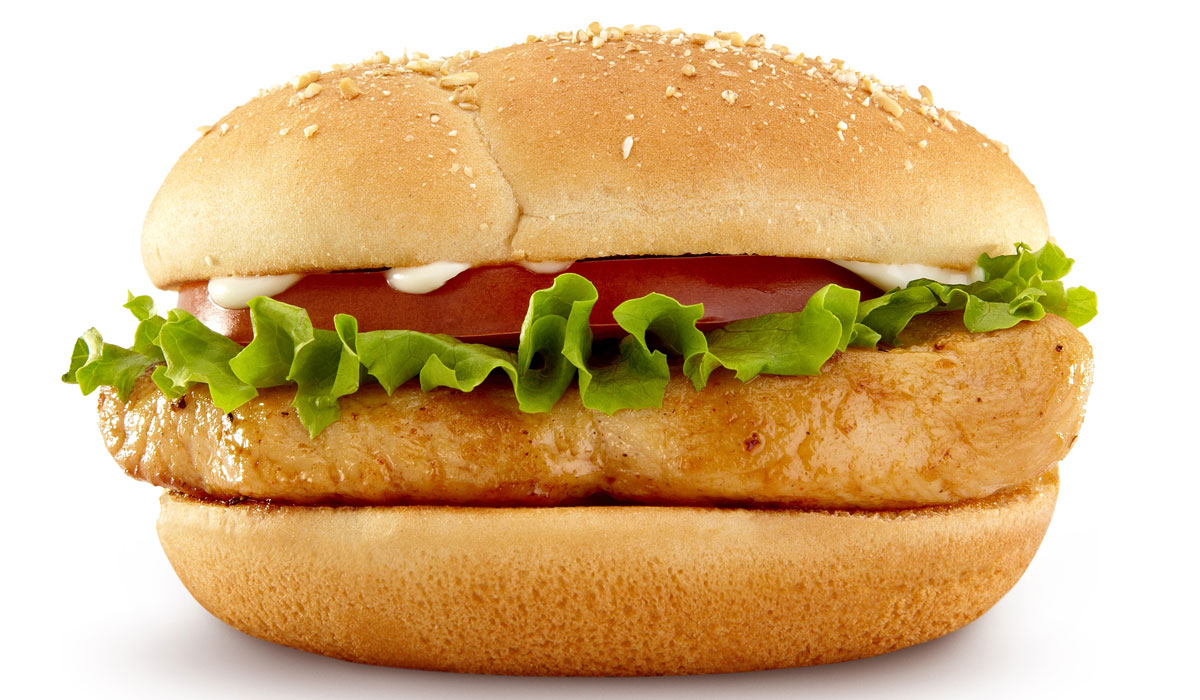While McDonald’s has undergone numerous menu changes in recent years, quality poultry has remained a key part of the burgers-and-fries powerhouse’s ongoing growth strategy.
Both fried and grilled chicken offerings have taken off for McDonald’s as American chicken consumption has skyrocketed. Capitalizing on demand, McDonald’s has expanded grilled chicken options on sandwiches and salads, while it also rolled out fried Buttermilk Chicken Tenders, the new Classic Chicken Sandwich on the $1 2 3 Dollar Menu, and other chicken-based menu options.
According to the U.S. Department of Agriculture, the average American ate nearly 92 pounds of chicken last year, almost as much as the total for beef and pork combined. McDonald’s has stayed in tune with that trend, most recently launching a “Better Chicken” project with an end goal of becoming a credible competitor to the sector’s standard-bearer, Chick-fil-A.
But growth hasn’t been McDonald’s exclusive goal with regards to chicken. Last year, the company launched a three-pronged Global Chicken Sustainability Strategy designed to guide the chain with regards to ethical treatment of its poultry. The goal was to bolster and promote ethical practices related to antibiotic stewardship, animal welfare, and chicken feed.
On Monday (March 26), McDonald’s doubled down on those efforts by establishing the Chicken Sustainability Advisory Council, a board of advisors gathered to help the company navigate growth in the chicken sector in a sustainable fashion.
The group includes suppliers, genetics experts, advisors like FAI Farms, researchers like Dr. Temple Grandin, and non-governmental organizations like the World Wildlife Fund.
“This global council is unique considering its membership and diversity, and will provide guidance for the welfare outcomes we will use across our global supply chain and the progressive targets we’ll set,” says Dr. Nicola Robinson, veterinary surgeon and senior manager for global sustainability at McDonald’s.
In 2017, McDonald’s issued an Antibiotics Use Policy for Broiler Chickens pursuant to the Global Chicken Sustainability Strategy. The policy outlined a commitment to serve chicken not treated with antibiotics determined by the World Health Organization to be important to human medicine.
Also last year, the chain committed to sourcing chickens raised with improved welfare outcomes, which McDonald’s noted would affect more than 70 percent of the brand’s global chicken supply. That initiative is slated to be fully implemented by the end of 2024.
“I think it’s one of the most comprehensive corporate programs that I’ve seen for chickens,” Grandin says.
McDonald’s is focused on welfare outcomes. These are objective measures of the welfare chickens experience throughout their lives, collected by directly observing how the animal walks or its ability to complete normal functions such as pecking and foraging.
Still, some groups claim the massive chain can do better for chickens bound for consumption at McDonald’s restaurants. Compassion in World Farming and the Humane League were just two groups that voiced support for McDonald’s intent to do more for chickens, but said there’s much more to be done to promote chicken welfare.
The Humane League, in particular, launched its “I’m Not Lovin’ It” campaign around the McDonald’s headquarters in Chicago in hopes of pressuring the Golden Arches to consider again its stance on chicken.
Despite claims that McDonald’s isn’t doing enough, the brand has undeniably made strides toward sustainability, the latest of which came in the form of the Chicken Sustainability Advisory Council, which has given a thumbs up to the brand’s chicken sustainability strategy.
As demand for chicken continues to grow, McDonald’s shows no signs of caving on upholding standards of quality and ethical treatment.











